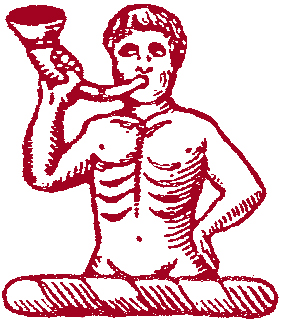This page notes a number of Murray men who have made a significant contribution to civic life. These include: Sir Mackenzie Bowell KCMG PC; William Johnston MP of Ballykilbeg; Colonel Frederick Hugh Crawford, CBE, JP; Senator Gerald Stanley Glover; Lord Laird of Artigarvan.
Sir Mackenzie Bowell KCMG PC
Mackenzie Bowell (December 27, 1823 – December 10, 1917) was a Canadian newspaper publisher and politician, who served as the fifth Prime Minister of Canada, in office from 1894 to 1896.
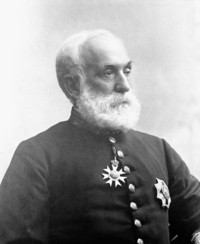
Mackenzie Bowell, the son of John and Elizabeth Bowell, was born in December 1823 at Rickinghall, Suffolk, England. The Bowell family emigrated to Canada in 1833 and they settled in the village of Belleville, Ontario, where John Bowell, who was a cabinet maker, had relatives.
Mackenzie Bowell started work at a printing business in Belleville and in the early 1850’s he became the owner of the business. He was a founding member of the Canadian Press Association in 1859 and he became President of the Association in 1865–66. A keen supporter of the militia he helped organise the Belleville Volunteer Militia Rifle Company in 1857. He saw active duty at Amherstburg, Upper Canada, during the American Civil War, and at Prescott during the Fenian disturbances of 1866.
Aged 18, Mackenzie Bowell joined the Orange Order in 1842. He was destined to rise through the ranks of the Order, which was strong in Canada, and was elected Grand Master of British North America from 1870 to 1878. In Londonderry in 1876 he was elected President of the Orange Order’s Imperial Triennial Council.
A special meeting of the Murray Club was held in Londonderry on 23rd September 1863 for the purpose of admitting Mackenzie Bowell as a member. He was presented with his sash and certificate on his departure from Lough Foyle in the Canadian Steamer.
Mackenzie Bowell was elected as a Conservative member of the Canadian parliament in 1867 – a position he held for the next 25 years. He was appointed a Cabinet minister in 1878 and served under three Prime Ministers. In 1892 he was appointed to the Senate and became Leader of the Government there the following year.
In December 1894 Prime Minister Thompson died suddenly in office and Mackenzie Bowell was appointed as his successor. He held the office of Prime Minister of Canada until 1896. He remained in the Senate until his death in December 1917 at the age of 93 having served continuously as a Canadian parliamentarian for 50 years.
William Johnston MP
William Johnston of Ballykilbeg was a staunch Protestant and Unionist who became widely known as the most famous champion of the Orange Cause of the nineteenth century. By the mid 1850’s he was a Deputy Grand Master of the Grand Orange Lodge of Ireland. In the Royal Black Institution he was Sovereign Grand Master from 1857 until his death in 1902.

William Johnston was born in 1829 the eldest son of John Brett Johnston and his wife, Thomasina Ann Brunette Scott, daughter of Thomas Scott. The Johnstons were minor landlords at Ballykilbeg, near Downpatrick.
William Johnston entered Trinity College, Dublin, in 1848 – the same year as he joined the Orange Order. He graduated with a BA in 1852 and MA in 1855. He became a barrister and was called to the Bar at King’s Inns, Dublin, in 1872.
He strongly opposed the Party Processions Act of 1850 which banned Loyal Order parades and he became a leading campaigner against it. This was in contrast to the aristocratic and cautious leadership of the Orange Order who were anxious to remain within the law and were not inclined to challenge it.
On 12th July 1867 William Johnston organised a 14,000 strong Orange Order parade from Newtownards to Bangor in defiance of the Party Procession Act. He was sentenced to two months in prison for his actions. This made him an Orange folk hero and very popular with the rank and file members of the Loyal Orders.
William Johnston had become a member of the Murray Club of Apprentice Boys of Derry in 1860. In Londonderry the authorities were keen to try to supress the Relief and Shutting of the Gates celebrations. In August 1871 William Johnston defied the ban on parades by leading the parade to St. Columb’s Cathedral for the traditional Relief Service. He was elected the City of Derry Grand Master of the Orange Order for the years 1873 to 1875.
William Johnston was elected as a Member of Parliament for Belfast in 1868 and held the seat until 1878. Wasting little time, the new independent Conservative member introduced a Bill to repeal the Party Procession Act in 1869 but the Bill was unsuccessful. Then in 1872 Gladstone’s administration quietly repealed the offending legislation. So, within the lifetime of a single parliament Johnston had achieved the goal for which he had sought election. The Loyal Orders were free to parade again after many years of bans.
In supporting the right to parade William Johnston did not seek anything for himself that he sought to deny to his Roman Catholic neighbours. He supported Gladstone’s Land Act of 1870 but, unusual for a landlord, thought it did not afford tenants sufficient security. He believed in and supported the secret ballot at elections, female suffrage and tenant rights. He was widely respected as being honest and principled by his Nationalist political opponents.
He was appointed Inspector of Fisheries in Ireland from 1878 to 1885. In 1885 he resumed his parliamentary career when the issue of Home Rule for Ireland arose and he was elected an independent MP for Belfast South. He won the seat again by a large majority in the 1886 general election, and was re-elected unopposed in the next three elections, serving until his death in 1902.
William Johnston died from pneumonia a few days after presiding at the Battle of the Boyne celebrations at Ballynahinch. The flag of the Murray Club and his Apprentice Boys of Derry sash draped his coffin at the funeral which took place to Rathmullan Parish Church, County Down.
Colonel Frederick Hugh Crawford, CBE, JP
Fred Crawford (21 August 1861 – 5 November 1952) was an officer in the British Army. A staunch Ulster loyalist, Crawford is most notable for organising the Larne gun-running which secured guns and ammunition for the Ulster Volunteers (UVF) in 1914.
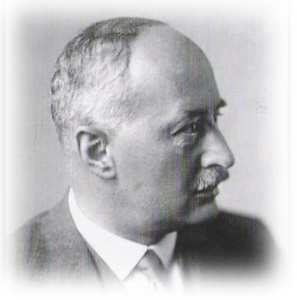
Crawford worked as an engineer for White Star Line in the 1880s, before returning from Australia in 1892. In 1894 he enlisted with the Mid Ulster Artillery regiment of the British Army, before being transferred to the Donegal Artillery, with which he served during the Boer Wars, earning himself the rank of major.
In 1898, Crawford was appointed governor of Campbell College, Belfast. Two of his children, Stuart Wright Knox and Malcolm Adair Alexander, both attended Campbell College.
In 1911 he became a member of the Ulster Unionist Council. On 28 September 1912 he was in charge of the 2,500 well-dressed stewards and marshals that escorted Sir Edward Carson and the Ulster Unionist leadership from the Ulster Hall in central Belfast to the nearby City Hall on Donegall Square for the signing of the Ulster Covenant, which he is alleged to have signed in his own blood. With the formation of the Ulster Volunteer Force (UVF) in 1913, he was made their Director of Ordnance.
In 1921 Crawford was included in the Royal Honours List and appointed a CBE. In 1934 Crawford wrote his memoirs, titled Guns for Ulster.
Possibly from his time in the Donegal Artillery, perhaps based in Londonderry, he became a member of the Murray Club. In his later years, aged 80 and eyesight failing, he regretfully resigned from the Club.
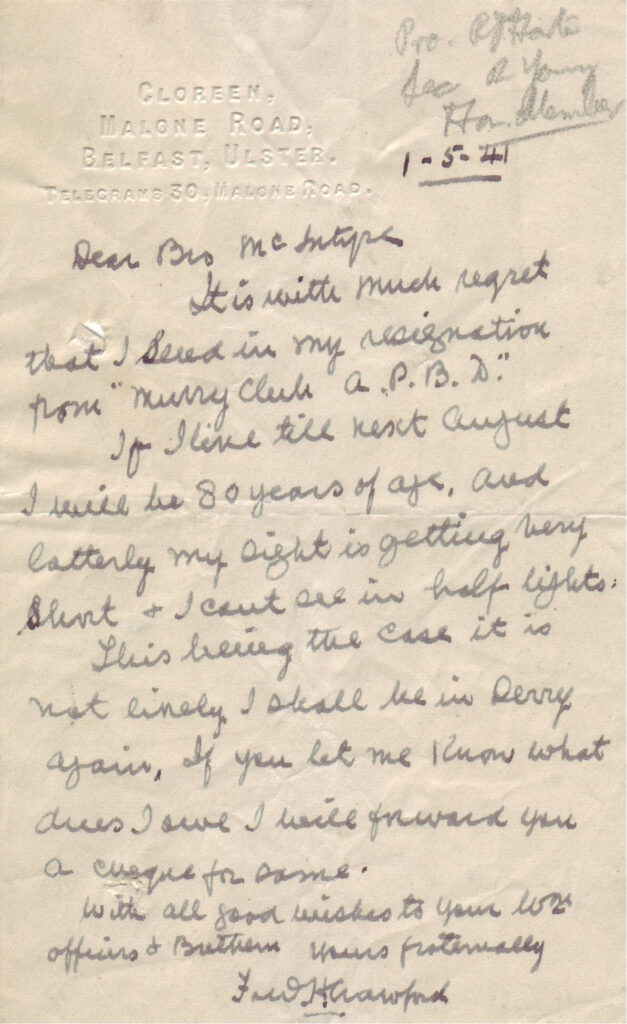
His request was refused and he was offered an Honorary Membership. Fred Crawford was delighted, and wrote a letter of his affection for Londonderry and of the heritage of the Siege; and included the story of his re-naming the Clyde Valley as the “Mountjoy II”.
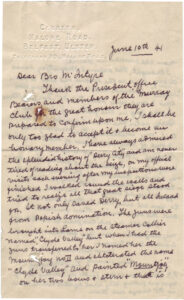
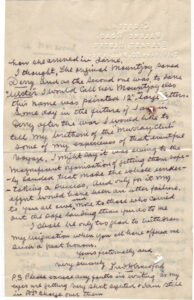
He died 5 November 1952, and was buried in the City Cemetery, Falls Road, Belfast. Upon news of his death he was described by the then Prime Minister of Northern Ireland, Sir Basil Brooke, as being “as a fearless fighter in the historic fight to keep Ulster British”.
Rt. Hon. William Grant
William Grant (6 April 1883 – 15 August 1949) was born in Belfast. He worked as a shipwright, and was a founder member of the Ulster Unionist Labour Association. He was also a founder member of the Ulster Volunteers. He was elected to the Northern Ireland House of Commons as an Ulster Unionist Party member for Belfast North in 1929, then winning Belfast Duncairn in 1929, holding this until his death.

William Grant became Parliamentary Secretary to the Ministry of Labour in 1938, then Minister of Public Security in 1941. As a cabinet post, this carried with it membership of the Privy Council of Northern Ireland. He was then appointed Minister of Labour from 1943 until 1944 and briefly in 1945, and also served as Minister of Health and Local Government from 1944 until his death in 1949.

Major Gerald Stanley Glover JP CBE
Gerald Stanley Glover was a businessman, served with distinction during World War Two, became Councillor in the Londonderry Corporation, was Mayor twice, and was President of the City of Londonderry and Foyle Unionist Association.
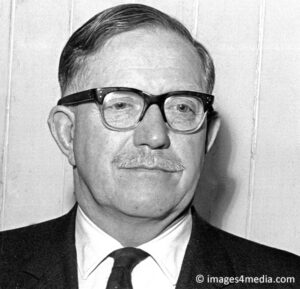
He was born in Belfast in March 1911. His father, who was from County Cavan, was a civil servant and his mother’s maiden name was Ballantine.
Following the death of his father in 1920 Gerald’s family moved to Londonderry where his mother originated. The Ballantines were prominent in various businesses in the city including being builders of the Apprentice Boys of Derry Memorial Hall.
Gerald was educated at the Model school, Londonderry, and at Ruthin school, Denbighshire, Wales.
After leaving school Gerald returned to Londonderry and entered the business of his uncle, James Ballantine, in the Londonderry Barrel Factory, where he served his apprenticeship as a cooper. In 1933 he entered the other section of the Ballantine business – the Foyle Sawmills – and he remained there until the outbreak of World War Two.
In 1933, at the age of 21, Gerald was appointed a Sub-District Commandant of the Ulster Special Constabulary, and in 1935 he was awarded the medal for the most efficient officer in the Londonderry area. In later years he held the post of District Commandant.
He was commissioned in the Supplementary Reserve in 1937 and was an officer in the 9th Anti-Tank Regiment. He was transferred to the 63rd Northumbrian Heavy Anti-Aircraft Regiment with which he served with distinction during the blitz on Tyneside. Subsequently he served for three and a half years with the same regiment in Ceylon and India. He left the Army with the rank of Major.
Gerald Glover returned to Londonderry from the war and was elected to the Londonderry Corporation in 1946 for the North Ward. He was a very efficient councillor and he was elected Mayor of Londonderry in 1950 – a position he held until 1952. He was also elected the city Mayor again from 1961 to 1963. While Mayor her also served as ex-officio member of the Northern Ireland Senate, sitting at Stormont.
When Mayor in 1951 the Festival of Britain Committee of Londonderry Corporation sponsored the publication of the book ‘History of the Siege of Londonderry 1689’ by CD Milligan.
Gerald Glover was appointed a Justice of the Peace in 1949. In the 1959 Queen’s Birthday Honours List he was appointed a Commander of the British Empire (CBE) for political and public services in Londonderry.
From the mid 1950’s he was President of the City of Londonderry and Foyle Unionist Association. He held this position during the turbulent years in the city in the 1960’s and 1970’s. Tragically Gerald’s younger brother Joseph, who was a leading businessman in Londonderry, was murdered by the IRA in 1976.
Gerald Stanley Glover died in Londonderry on January 2000 – a city he loved and to which he gave great service.
Lord Laird of Artigarvan
John Laird (23 April 1944 – 10 July 2018) was a Northern Irish politician, Life Peer and former Chairman of the cross-border Ulster-Scots Agency.

Whilst Chairman of the Ulster Young Unionist Council in 1970, Laird became the youngest member of the Parliament of Northern Ireland, after winning the seat of Belfast Saint Anne’s in a by-election caused by the death of his father, Dr Norman Laird OBE.
He was expelled from the Ulster Unionist Parliamentary Party in January 1972 when he voted for a Democratic Unionist Party censure motion opposing a ban on certain processions planned for The Twelfth. He topped the poll in Belfast West in the 1973 Northern Ireland Assembly election opposed to the proposals of the former Prime Minister Brian Faulkner. He repeated this feat as an Ulster Unionist candidate in the 1975 Constitutional Convention election.
He established John Laird Public Relations in 1976, called JPR (now JComms), Northern Ireland’s longest established PR company.
Lord Laird was a close ally of David Trimble – they were both around the Vanguard movement of Bill Craig. He was an enthusiastic promoter of Ulster Scots. He was created a life peer on 16 July 1999 as Baron Laird, of Artigarvan in the County of Tyrone.
